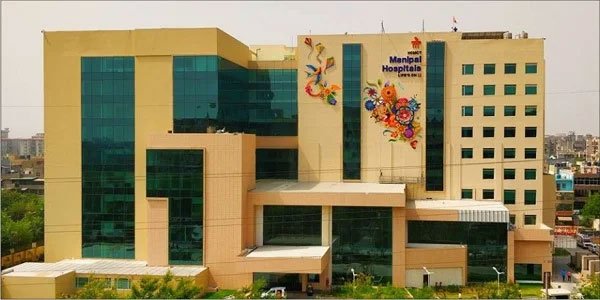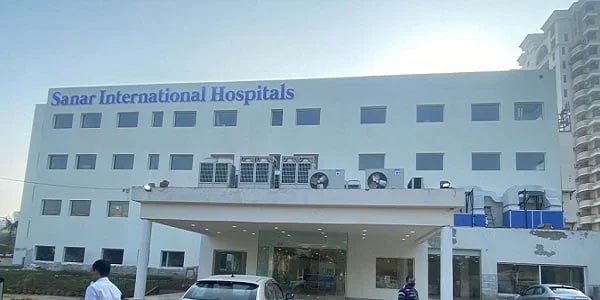Best Liver transplant in India
What is a liver transplant?
A liver transplant is a surgical procedure that removes a liver that does not work properly anymore (liver failure) and substitutes a healthy liver from a donor.
Liver transplantation is for patients who have complications following chronic end-stage liver disease. A liver transplant may also be a treatment option in the rare event that a healthy liver suddenly fails.
The number of patients waiting for a liver transplant far exceeds the count of deceased donors available.
The live donor liver transplant is an alternative to waiting for the availability of a deceased donor liver. Transplantation of the liver by a living donor is possible because the human liver grows and returns to normal size soon after a little of it is removed.
What does the Liver do?
The liver is located on the right side of the abdomen and weighs approximately 1500g. The liver is composed of two large parts, called the right and left lobes. The gallbladder is located below the liver, along with the pancreas and intestines. The liver and these organs work hand in hand to digest, absorb and process food.The liver is the body’s largest internal organ, performs a variety of important functions, including
- Preventing infections
- Removing bacteria and toxins from the blood
- Controlling immune responses
- Processing nutrients, medications, and hormones
- Making proteins that help the blood clot
- Producing bile, which helps the body absorb fats including cholesterol and fat-soluble vitamins
- Storing vitamins, minerals, fats, and sugars for use by the body
What investigations:
To check your general health, blood group, and tissue type, you’ll need a lot of blood tests.
Blood group: In order to find a suitable donor, you’ll need to know your blood group. This is a straightforward blood test. Your donor must have the same blood group as you.
Organ and blood functions:: Blood tests will be performed to determine the function of your kidneys, liver, and blood clotting ability.
Infection and general health: Your blood will be tested for infection and diseases (such as HIV, hepatitis B, and hepatitis C) as well as to keep track of your overall health.
Why would you require a liver transplant?
Patients with the following conditions may require a liver transplant:
- Alcoholism causes liver damage (Alcoholic cirrhosis)
- Hepatocellular carcinoma, Hepatoblastoma, Hilar Cholangiocarcinoma, and other liver cancers
- Primary biliary cirrhosis
- Active infection (hepatitis B or C) that has been active for a long time (chronic infection)
- Liver (hepatic) vein clot (thrombosis)
- Birth defects of the liver or bile ducts (biliary atresia)
- Metabolic disorders associated with liver failure (e.g., Wilson’s disease)
Who is a good liver donor?
- Biological siblings are usually the best donors alive because of matching.
- Have the same blood group.
- The donor should be in good physical and mental health.
- The donor must be at least 18 years old and under 50 years old.
- The donor must not be obese or have fatty liver.
Guidelines for a Liver transplant in India
To take advantage of liver transplantation in India, there are some guidelines, steps, and protocols that are enforced by the government.
- The donor and the recipient must be related to each other.
- The donor should be in the age range of 18 to 50 years preferably.
- It is advisable that living donors should be mentally healthy.
- A physically fit donor with no diseases improves outcomes.
- Recipient and donor should apply to the Chairman, Authorization Committee, Jeevandan AP in Form-11 & treatment certificate given by the treating Nephrologist and Urologist and Transplant Surgeon / Liver Transplant Surgeon along with necessary documents for granting permission for transplantation.
- The application should be forwarded by the Hospital Administrator / Medical Superintendent/ Medical Director of the hospital concerned where the transplantation is proposed to be carried out along with all necessary documents. The decision of the committee will be sent to the hospital from which hospital the application is forwarded, but not directly to the recipient.
- Family structure certificates should include self, father, mother, brother(s), sister(s), spouse, son(s), and daughter(s) with name, age, and address.
- The permission given is valid for a particular patient and donor, the hospital, doctors (Nephrologist and Transplant Surgeon) from which the application is forwarded to the committee and cannot be transferable.
- No foreigner can undergo transplantation with an Indian donor. They can bring the donor from their country of origin duly certified/forwarded by their Embassy for transplantation in India.
- A certificate of non-objection is issued to the patient by the high commission of the patient’s country of origin in India, which is then presented to the hospital.
- Cases submitted to the transplant board for authorization. The patient shall submit all necessary documents for the approval of the Transplant Committee.
- Lastly approval of the Committee
Best Hospitals in India

Manipal Hospial Dwarka
View Profile
Dr. Rela Institute Medical Centre
View Profile
Jaslok Hospital
View Profile
W Pratiksha Hospital
View Profile
Sanar Hospital
View Profile
Fortis Memorial Research Institute
View Profile
Max Hospital
View Profile
BLK Hospital
View Profile
Medanta Hospital
View Profile
Artemis Hospital
View Profile
Apollo Hospital
View ProfileProvide Your Details
Our Health Expert will get back to you shortly.
